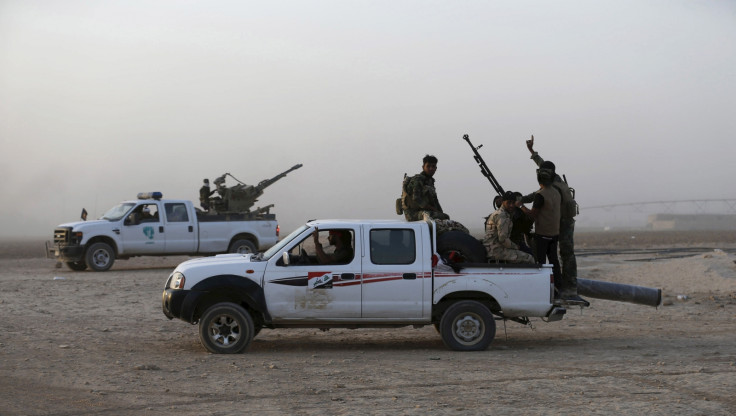Outspoken Iraqi journalist kidnapped from her home in Baghdad
Men arrived in three pickup trucks and raided her home on Monday, 26 December.

Masked gunmen have stormed the home of a fearless Iraqi journalist and kidnapped her, security officials have confirmed.
Afrah Shawqi al-Qaidi, 43, was taken from her home in the capital of Baghdad on Monday (26 December) by gunmen, who were dressed in civilian clothes.
They arrived in three pickup trucks at 10pm, claiming to be security personnel, before taking her to an unknown location. Her car and personal belongings were also reportedly stolen.
Prime Minister Haider al-Abadi has ordered an immediate investigation into the kidnapping and said he will "exert the utmost effort" on security forces to save her.
Al-Qaidi worked as a freelance journalist and her articles have appeared on several widely read news websites, including the London-based Asharq al-Awsat and Iraq's Aklaam.
She recently wrote an article in which she expressed anger at public corruption and that armed groups linked to the government could act with impunity.
The article, published by the Aklaam website, criticised an interior ministry official for allegedly assaulting a headmaster when she refused to expel a student due to a family feud involving the minister.
Photos had then circulated on social media of the minister and his colleagues carrying weapons within the school.
Al-Qaidi wrote: "There is nothing worse in a country than humiliating a teacher; nothing is worse than neglect by those who carry weapons. If the state is anxious to preserve its prestige, it should hold accountable whoever uses weapons illicitly."
According to CNN, Al-Qaidi's two children were tied up during the kidnapping and her brother-in-law was beaten.
In a statement, the governor of Baghdad, Ali Tamimi, denounced what he described as a "barbaric" act that sought to "persecute and muzzle journalists".
French group Reporters Without Borders has described Iraq as "one of the most dangerous countries" in the world for journalists.
It states: "Journalists are often targeted by armed men belonging to militias close to the government, or extreme opposition groups such as the Islamic State group, which has embarked on a war of conquest of Iraqi territory.
"Crimes remain unpunished with investigations which, when carried out, result in no results.
"Journalists live in a hostile environment. The government tries to control the media that it considers "non-neutral" or "sectarian" by shutting them down."
In 2016, seven reporters have died in Iraq, out of a total of 57 fatalities worldwide.
Iraqi journalist Afrah Shawiqi abducted from her house west of #Baghdad last night according to family. pic.twitter.com/JjuuZhTbxX
— Zaid Benjamin (@zaidbenjamin) December 27, 2016
© Copyright IBTimes 2025. All rights reserved.






















